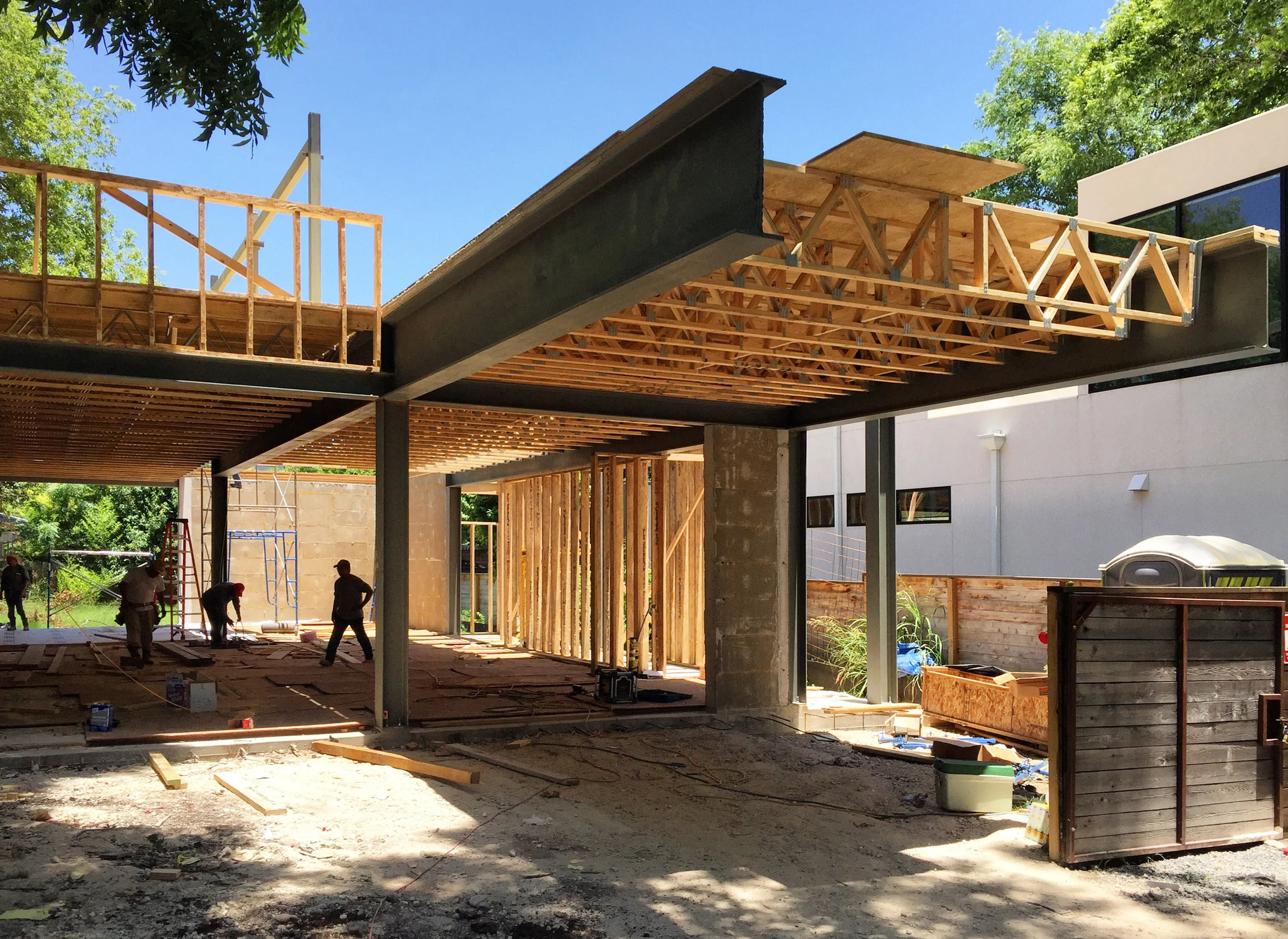Preface by Matt Fajkus:
There is a saying that goes something like this, “Engineers have to know everything about one thing, and architects have to know a little about everything.” There is generally some truth in that, as architects are the choreographers of the entire design process. This includes coordinating with all consultants – especially engineers, who bring great value and technical expertise to any given project. In this article, Zahid brings his unique perspective to bear, as he has a degree in Architectural Engineering from The University of Texas at Austin (as a former student of mine), and a degree in Architecture from Cornell University.
There are many different types of engineers involved in the building industry. While it’s best to hire an engineer when doing any type of construction, they are not always necessary. Before starting any new project, it’s important to check with your local governing body to see which types of submittals are necessary to obtain permits and which types of people need to certify those submittals. Dealing with the local governing code can get hairy, so one of the major benefits of hiring an architect is letting them coordinate and schedule design, engineering, and construction all at once.
Structural Engineers
Structural engineers are crucial to almost every new building, and most governing bodies require a set of engineered submittals to obtain a permit. At their most basic function, structural engineers design the bones of a new building to resist forces caused by gravity and the elements. On a more refined level, structural engineers can help optimize the structure of the building to reduce material waste and design new types of connections that reinforces an architectural concept. Structural engineers are also able to give recommendations on repairing or retrofitting dilapidated structural systems in older buildings. Since the safety of occupants within the building relies much upon the structure, it’s always a good move to include a structural engineer within your budget. Depending upon the size of construction, a structural engineer may not be needed, but is always recommended.
Civil Engineers
Civil engineers mostly deal with land and water surrounding construction, but can also get involved in urban projects such as utilities, transportation, waste, and bridge design. On a typical building project, a civil engineer will provide a design for redeveloping the existing land contours to one that works with the foundation and architectural layout. Furthermore, they will also help coordinate city utilities, road development, and water movement through or around the new build. Civil engineers help set the tone of the project because most projects start construction with designs developed by them. Given that a significant portion of the energy waste that occurs within the building industry is due to land redevelopment, a civil engineer can help reduce energy consumption and provide sustainable strategies for the site your project occupies.
Geotechnical Engineers
Geotechnical engineers are more specialized than most other engineers and are usually associated with larger projects, but can be common on smaller projects, especially if the soils in a specific area are considered bad. They deal with the geology of a specific site, and often take multiple samples of the soils on a site and provide recommendations on what types of foundations to use and how much material is needed to provide the proper resistance to common soil issues. Usually if you hire a civil or structural engineer, they will contract a geotechnical engineer only if the project necessitates one.
Mechanical Engineers
Mechanical engineers provide designs for systems dealing with air quality, as well as heating, cooling and ventilating spaces. Their work is extremely influential for sustainable solutions because the majority of wasted energy in the building industry is often associated with underperforming HVAC systems. Furthermore, specialized mechanical engineers can also design high-tech, passive, or green facades that help reduce factors such as solar heat gain and thermal bridging, which lead to higher energy usage. Especially in the Texas heat, keeping the heat down and the humidity out is crucial to a comfortable space. If you are looking to replace or revamp anything do with the air systems in a building, it’s beneficial to hire a mechanical engineer because the cost-saving measures they propose can be worth the initial investment.
Electrical Engineers
Electrical engineers are responsible for the electrical systems within buildings. On smaller projects, a licensed electrician with the guidance of an architect can usually handle the electrical system, but when it comes to a project larger than a small multi-family dwelling, electrical engineers help streamline the process of organizing a project-wide electrical system. They are most helpful for power generation systems, sizing transformers, and implementing safe grounding methods.
Environmental Engineers
Environmental engineers combine multiple sciences to provide solutions for natural and environmental concerns, such as resource, waste, and ecological management. Because most of what they do deals with the public realm, they have a significant impact on land-use and governmental regulations regarding emissions, conservation, and energy modeling. Typically, it’s only necessary to hire an environmental engineer for larger projects, or the architect will contract one if necessary. However, if your site is occupied by protected wetlands or endangered species, it’s best to give an environmental engineer a call to receive solutions on how to proceed.
Acoustical Engineers
Amongst one of the most specialized engineers, acoustical engineers deal with sound transmission, reflection, and absorption. They are critical for projects such as concert halls, theatres, schools, and factories. Acoustical engineers provide solutions for increasing or decreasing background noise, reverberation, or amplification. They have a significant impact on the quality of spaces regarding anything where there is too much or too little sound. If you’re looking to reduce the sound transmission from one room to another in your home, an acoustical engineer may be overkill, since an architect can provide small-scale solutions. If you’re trying to reduce the noise from the nearby train station or airport, an acoustical engineer will be extremely helpful.
Written by Zahid Alibhai


